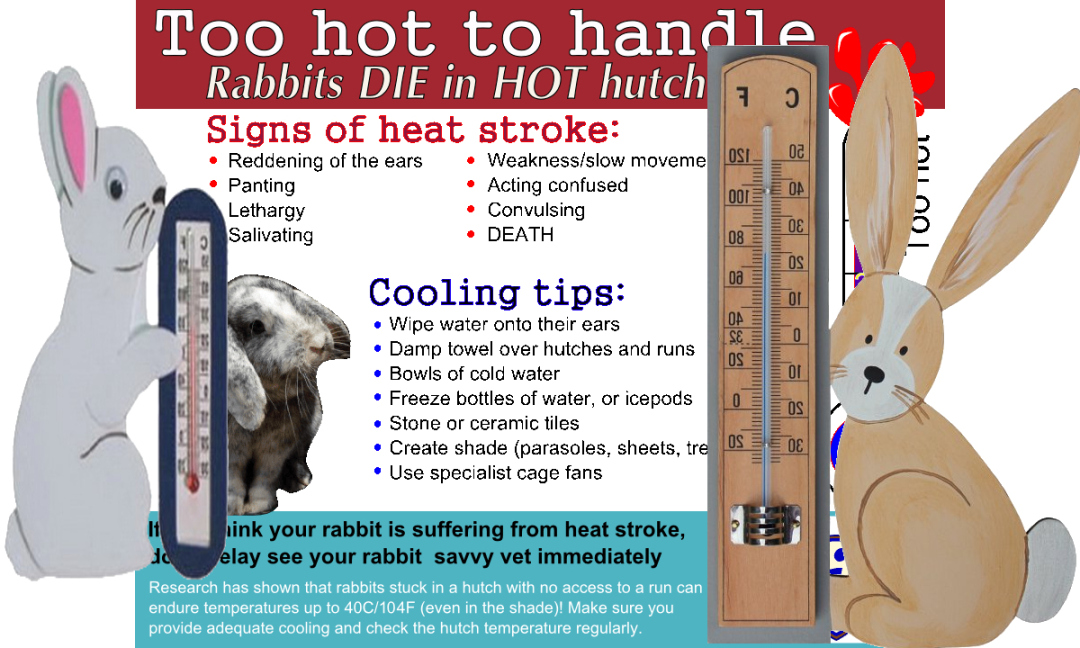What Temperature is Dangerous For Rabbits?
Rabbits are highly sensitive animals when it comes to temperature changes. They have specific temperature requirements to remain healthy and comfortable. Extreme temperatures, whether hot or cold, can be dangerous for rabbits and can lead to serious health issues, or even death. It is crucial for rabbit owners to understand what temperature ranges are safe for their furry friends and take necessary precautions to keep them in a suitable environment.

Safe Temperature Range for Rabbits
The ideal temperature range for rabbits lies between 60°F (15°C) to 70°F (21°C). This is considered the most comfortable range for rabbits to thrive without facing any adverse effects. Within this range, rabbits can regulate their body temperature effectively, ensuring their overall well-being.
Maintaining a suitable temperature range is crucial for the health and well-being of rabbits.
Dangers of Hot Temperature
Hot temperatures can be extremely dangerous for rabbits as they are unable to tolerate excessive heat. When the ambient temperature exceeds the safe range, rabbits are prone to heat stress and heat stroke. Some of the dangers associated with hot temperatures include:
- Heat stroke: Rabbits are not able to sweat like humans, and they release heat primarily through their ears. When the temperature rises too high, their bodies struggle to dissipate heat, leading to heat stroke.
- This can be fatal if not treated promptly.
- Dehydration: High temperatures can cause rabbits to become dehydrated quickly. Lack of water intake can result in various health issues and even organ failure.
- Reduced appetite: Rabbits may lose their appetite when exposed to extreme heat, leading to inadequate nutrition and weight loss.
- Respiratory distress: Rabbits may experience difficulty breathing in hot conditions, which can be life-threatening.
Dangers of Cold Temperature
Cold temperatures can also pose significant risks to rabbits. While rabbits are better equipped to handle colder weather compared to extreme heat, prolonged exposure to cold temperatures can still be dangerous. Some of the dangers associated with cold temperatures include:
- Hypothermia: Rabbits can develop hypothermia if exposed to very low temperatures for extended periods. Hypothermia occurs when the body temperature drops below the normal range, leading to various health issues and potential death.
- Frostbite: Rabbits’ extremities, such as their ears and feet, are susceptible to frostbite in freezing temperatures. This can result in tissue damage and require medical intervention.
- Respiratory issues: Cold temperatures can weaken a rabbit’s immune system, making them more susceptible to respiratory infections.
- Arthritis: Cold weather can worsen existing joint issues or lead to arthritis in rabbits, causing pain and discomfort.
FAQs about Rabbit Temperature
1. Can I keep my rabbit in an outdoor hutch during extreme weather conditions?
It is not recommended to keep rabbits in an outdoor hutch during extreme weather conditions. Rabbits are sensitive to temperature changes, and exposing them to extreme heat or cold can put their health at risk. It is best to provide a well-insulated and temperature-controlled environment for your rabbit indoors.
2. How can I help my rabbit stay cool during hot weather?
To help your rabbit stay cool during hot weather, you can:
- Ensure they have access to fresh, cool water at all times.
- Place frozen water bottles in their enclosure for them to lean against.
- Provide a shaded area in their enclosure, away from direct sunlight.
- Use fans or air conditioning to maintain a comfortable indoor temperature.
3. What can I do to keep my rabbit warm in cold weather?
To keep your rabbit warm in cold weather, you can:
- Place extra bedding, such as hay or straw, in their enclosure to provide insulation.
- Ensure their hutch or enclosure is well-insulated and protected from drafts.
- Consider using heat pads or blankets designed for pets, ensuring they are used safely and not at risk of overheating.
- Bring them indoors if the temperature drops to a dangerous level.
4. Is it normal for rabbits to shiver in cold temperatures?
Rabbits may shiver in cold temperatures as a response to maintain their body heat. However, continuous shivering or shivering accompanied by other signs of distress may indicate that the cold is too severe for your rabbit. It is important to ensure their environment is warm enough to prevent prolonged shivering and potential health issues.
Related Articles…
Copyright Notice:
The images displayed here are sourced from the internet, with copyrights held by respective owners. For removal of any copyrighted image, please email us.